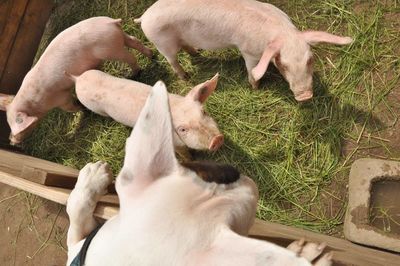In addition to routine laboratory analysis, the lab devotes time to projects aimed at the development and implementation of new methods and technologies, particularly in the field of diagnostic virology.
Development and validation of the RT-qPCR method for universal detection of the influenza A virus
The extreme genetic variability of the influenza A virus poses a major problem in molecular detection of this important humane & veterinary pathogen. The continuous changes over time and the wide range of hosts, including possible zoonotic infections and reverse zoonoses, all combine to make the influenza more than difficult to detect; as a result, there is the necessity of constant modification of existing methods or, where appropriate, introduction of new methods. For this reason, the current RT-qPCR methods are rather designed for detection of the influenza A virus in individual categories of hosts, e.g., for avian influenza, seasonal influenza A in humans, or detection in pigs or equines. These methods are not only different – multiple methods are often recommended to detect influenza A even for the respective host. For instance, the current WHO guidebook provides 4 different RT-qPCR methods to detect influenza A in humans.
Our previous study – one that focussed on the analysis of the variability of the M segment of the influenza A virus by comparing the complete database collection of sequences of all sub-types, hosts and outbreaks from 1919-2018 (more than 90,000 sequences) – identified the presence of highly conservative areas. To follow up the mentioned results, our goal is to design and fully validate a universal RT-qPCR method applicable for routine monitoring of the influenza A virus not only in humans, but also in pigs, birds and other host species with the capacity of detection of zoonotic infections, including novel, potentially pandemic strains.




